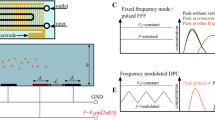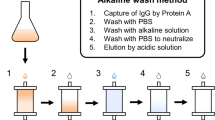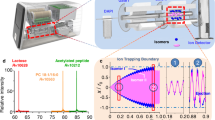Abstract
THE observation and analysis of isolated cell fragments gives much information on the way in which the more complex structures are put together. The usual method used for separating cell fragments is differential centrifugation, in which the difference in size and particle density is the determining factor. Albertsson1 has studied the separation of cells and cell fragments using column chromatography. This is a method of interest since it separates the cell fragments on the basis of the physical and chemical properties of the surface of the particles. This communication points out that the well-known technique of paper chromatography can be extended from the separation of molecules to the separation of cell fragments of very large molecular weight.
This is a preview of subscription content, access via your institution
Access options
Subscribe to this journal
Receive 51 print issues and online access
$199.00 per year
only $3.90 per issue
Buy this article
- Purchase on Springer Link
- Instant access to full article PDF
Prices may be subject to local taxes which are calculated during checkout
Similar content being viewed by others
References
Albertsson, P., Nature, 177, 771 (1956).
Arnon, D. I., et al., Biochim. et Biophys. Acta, 20, 450 (1956).
Author information
Authors and Affiliations
Rights and permissions
About this article
Cite this article
WILSON, A. Paper Chromatography of Cell Fragments. Nature 184, 2016–2017 (1959). https://doi.org/10.1038/1842016b0
Issue Date:
DOI: https://doi.org/10.1038/1842016b0
Comments
By submitting a comment you agree to abide by our Terms and Community Guidelines. If you find something abusive or that does not comply with our terms or guidelines please flag it as inappropriate.



